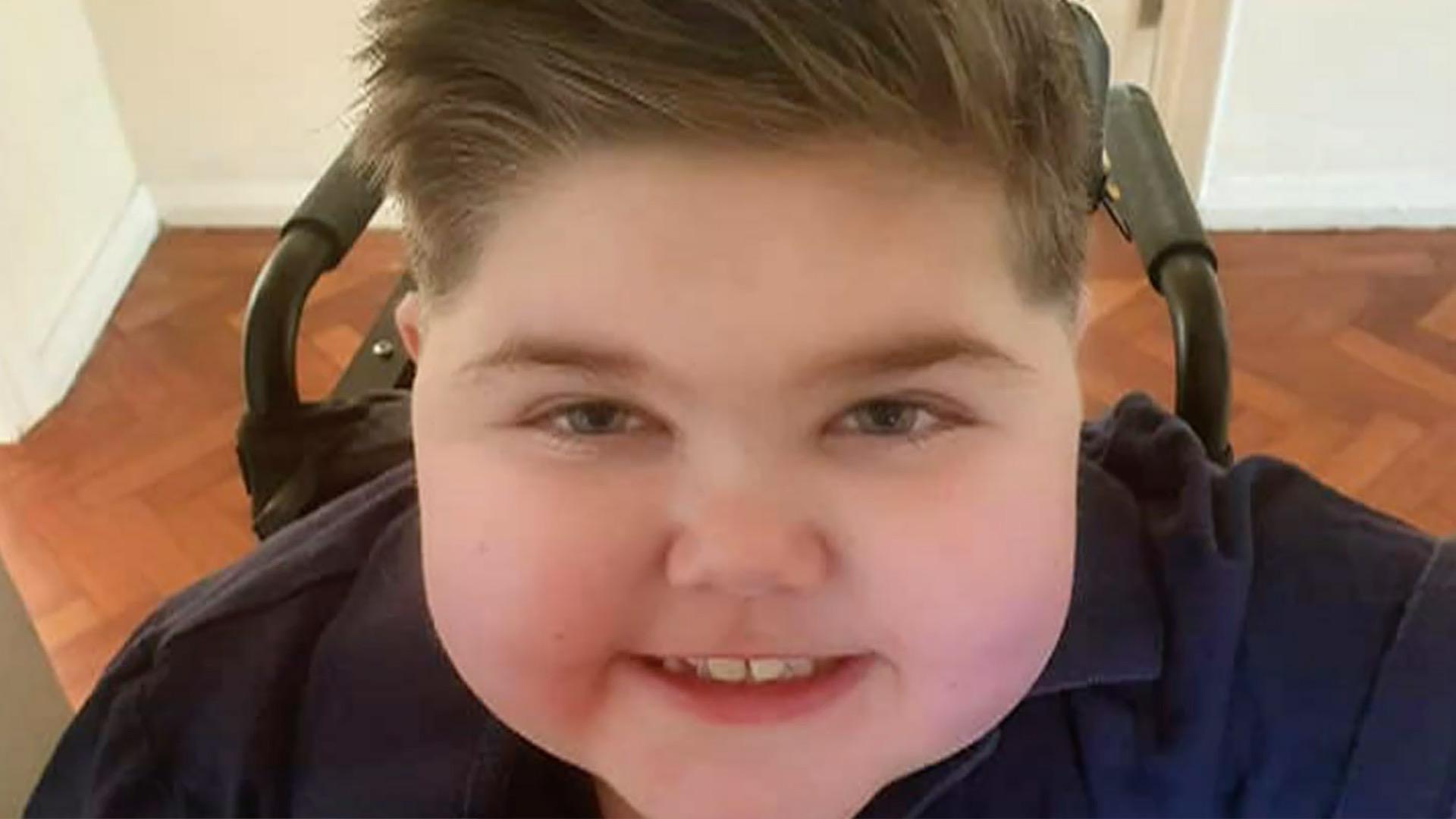Disability: Ballet dancer Joe Powell-Main seen as 'wrong type'
- Published
Joe Powell-Main, 23, uses his wheelchair and crutches in his performances
"Coming back to [dance] with a disability, a lot of people... see me probably as the wrong type of dancer doing ballet."
Despite being Wales' first professional ballet dancer with a disability, Joe Powell-Main has faced some judgements.
The 23-year-old has returned to dance from injury and uses his wheelchair and crutches to perform.
He said it should be easier for others like him to enter the profession in future.
Joe, who is from Newtown in Powys, has danced since he was a child.
But while he was training at the Royal Ballet as a teenager he suffered a series of injuries, leaving him with long-term damage to his left leg.
The injuries left him depressed as dancing had been his world since he was a child.
After three years he wanted to start dancing again, but found it difficult to be accepted in the ballet world.
'I've had people making snap judgements'
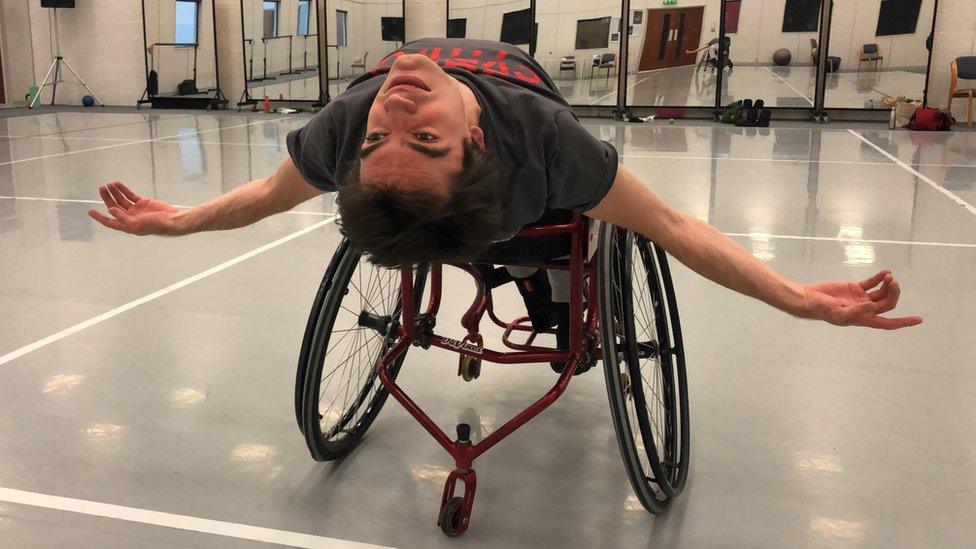
Joe says it can be "difficult to navigate" some perceptions of his ballet dancing
"I've had people making snap judgements and be like: 'You're in a wheelchair, you use crutches, so how are you going to be able to do dance?'," he said.
"It can be quite difficult to navigate."
He said his movements don't necessarily conform to the strict rules of what people should expect, but that does not mean it is not ballet.
'What I'm still doing is ballet'
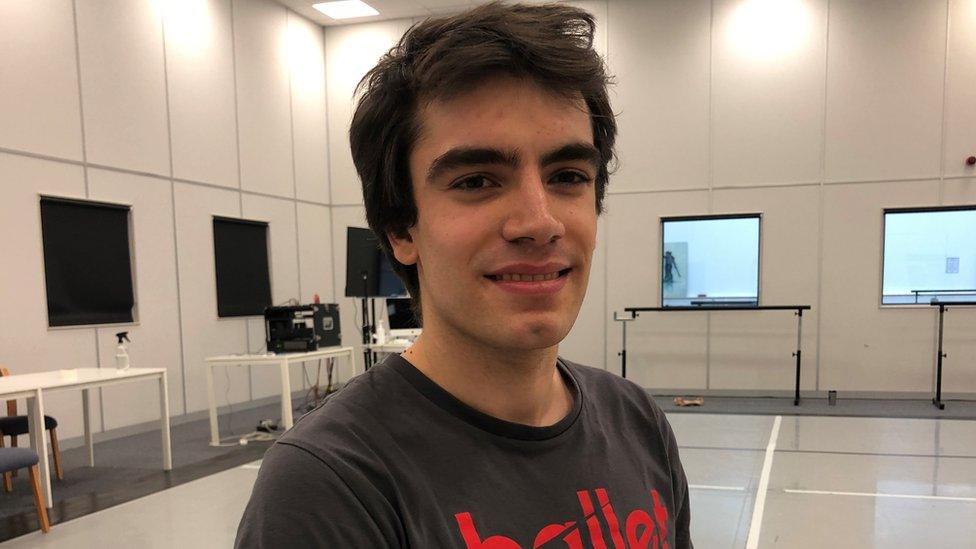
The 23-year-old hopes there will be more dancers like him in the future
"Sometimes it doesn't look like conventional ballet - people in point shoes, legs up by their ears... but there needs to be a willingness to look beyond that and see that its different," he said.
"What I'm still doing is ballet, I'm just sitting down or I'm using my chair or I'm using my crutches to assist me to be able to do things, just in a different way.
"I think if people can look beyond that and see that there's something there that you know, that can be taken forward and hopefully there will be more dancers like me."
'I need to crack this for others'
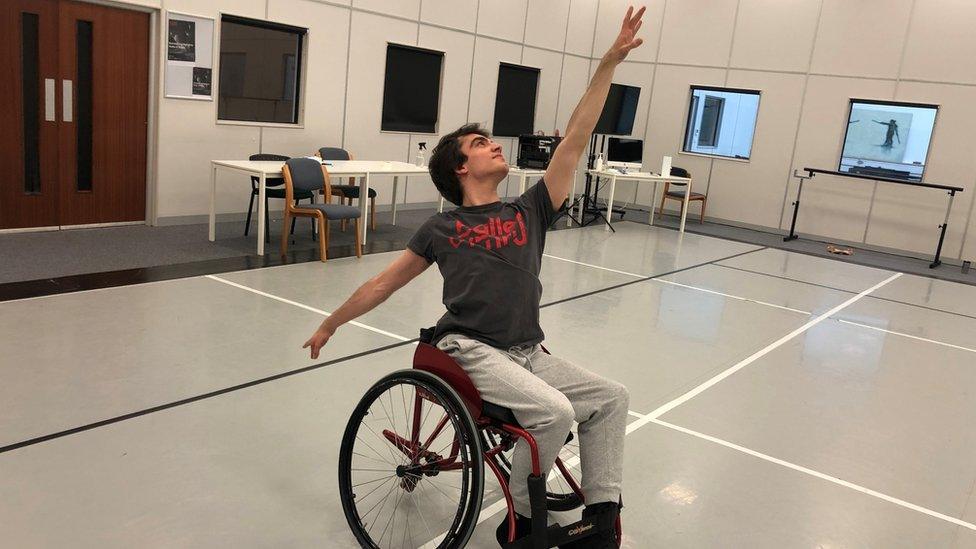
Joe has twice been UK paradance champion performing with his sister
The 23-year-old refers to himself as "differently abled" rather than disabled because he said it "adds a stigma that people think: 'Oh, well you can only do this'".
Joe believes he is the first such dancer to have a professional contract with a ballet company.
But he said it has been a difficult journey and he wants opportunities widened for others.
"For me to be able to get the balletic movement again, even though it was in my wheelchair, spurred me on - I was like right there's no one else like me so I need to crack this for other people as well.
"Even now it can be quite difficult to navigate, but I think unfortunately that comes with the territory and if change is to happen, that is something I need to go through, for me and everyone coming after me as well."
He's twice been UK para-dance champion performing with his sister, and also performed with the Royal Ballet at the homecoming event for the Paralympics in September.
'Beautiful and diverse'
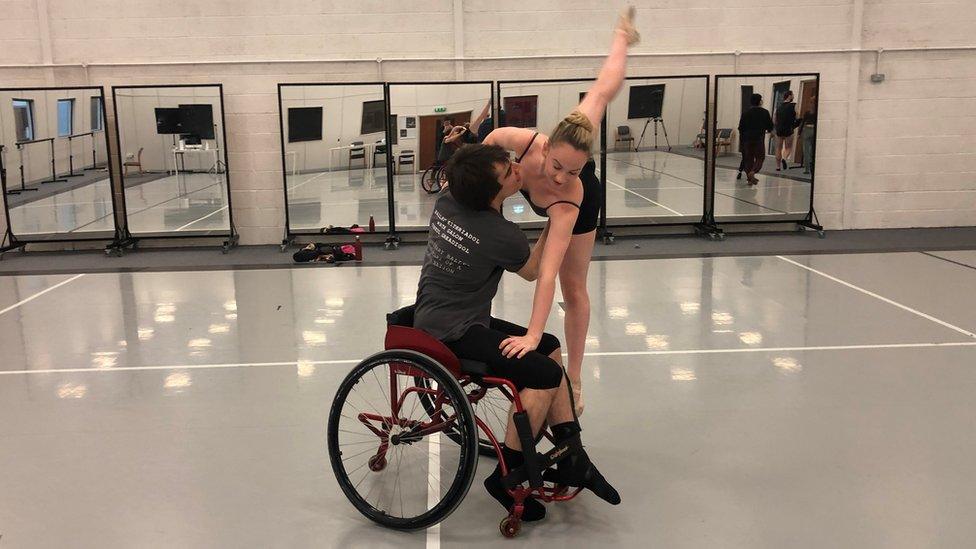
Joe uses his wheelchair and crutches to integrate his performance with other dancers
Joe has also just completed a UK tour of Giselle with Ballet Cymru, a Newport based company which wants to change perceptions of ballet.
Its artistic director, Darius James, said the ballet world needs to change and see it as a "beautiful diverse ballet" as the dance was 80 years ago.
"I would ask [people] to come and see Joe on stage and our entire company on stage and look at the diversity and see that it actually is ballet that if you take it back to the roots of ballet," he said.
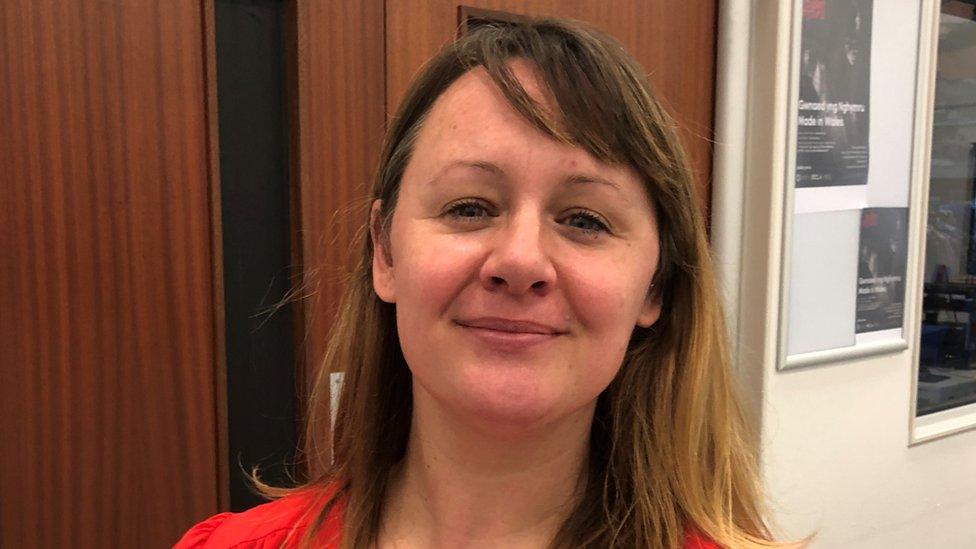
Amy Doughty organises a programme to help people from diverse backgrounds to feel ballet is for them
Ballet Cymru also has a programme to encourage young people from more diverse backgrounds into ballet.
Amy Doughty, who organises the project, said it is so those with different levels of physical ability, less affluent backgrounds and different body shapes all feel ballet is for them.
"It's about talent and we know that talent is everywhere and we only see such a small proportion of that talent because historically its only been accessed by a small group of people," she said.

TEENAGE KICKS: New series of BAFTA award-winning In My Skin
BACK TO THE VALLEYS: Beena is young, spirited and fancy free, well she was until Mam got involved...

Related topics
- Published19 November 2021
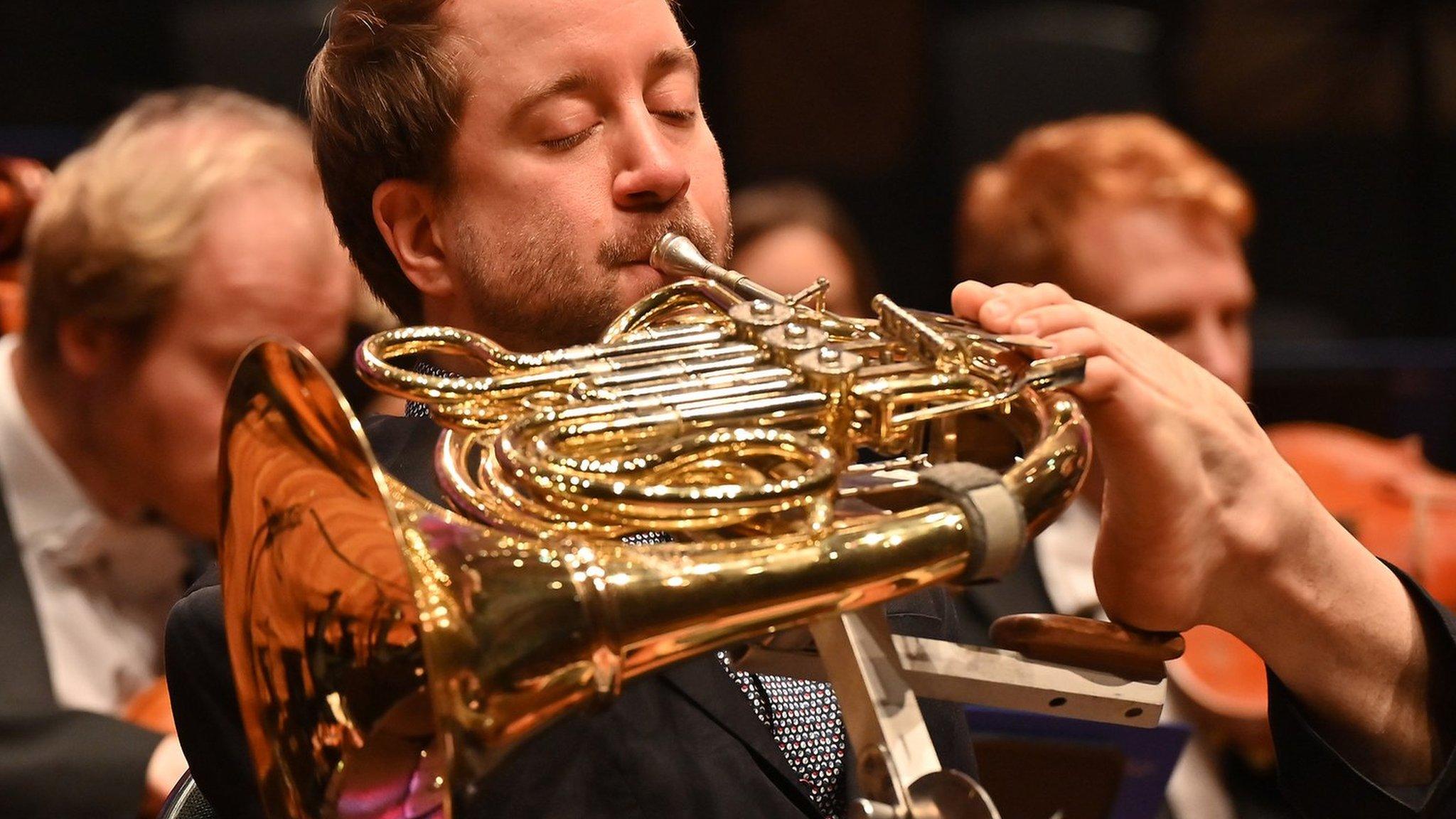
- Published18 April 2020
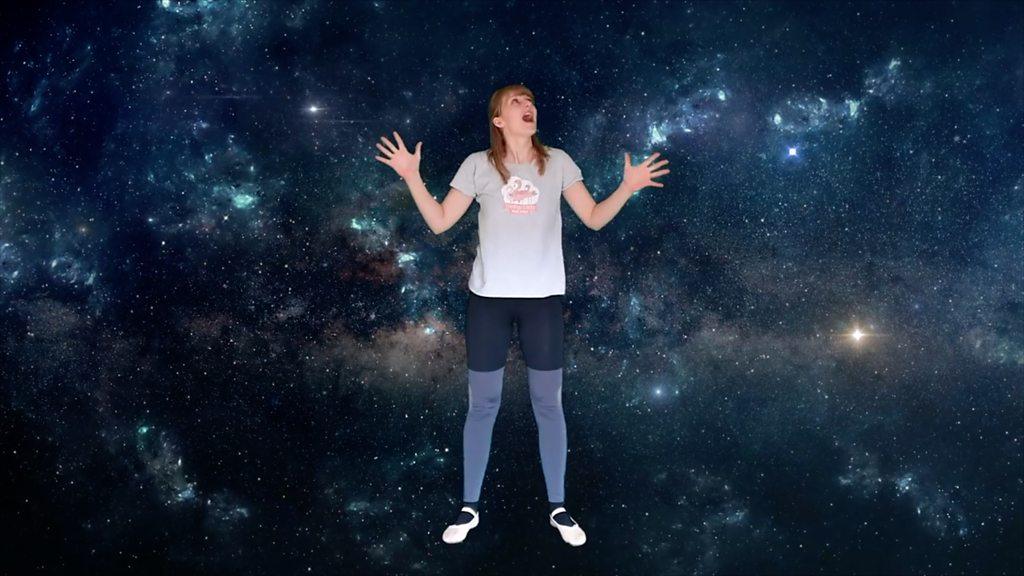
- Published1 December 2021
